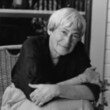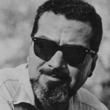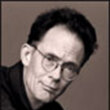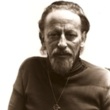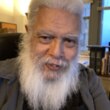Do androids dream of electric sheep?
Author
Publisher
Varies, see individual formats and editions
Publication Date
Varies, see individual formats and editions
Language
English
Appears on list
Description
A masterpiece ahead of its time, a prescient rendering of a dark future, and the inspiration for the blockbuster film Blade RunnerOne of The Atlantic’s Great American Novels of the Past 100 Years By 2021, the World War has killed millions, driving entire species into extinction and sending mankind off-planet. Those who remain covet any living creature, and for people who can’t afford one, companies built incredibly realistic simulacra: horses, birds, cats, sheep. They’ve even built humans. Immigrants to Mars receive androids so sophisticated they are indistinguishable from true men or women. Fearful of the havoc these artificial humans can wreak, the government bans them from Earth. Driven into hiding, unauthorized androids live among human beings, undetected. Rick Deckard, an officially sanctioned bounty hunter, is commissioned to find rogue androids and “retire” them. But when cornered, androids fight back—with lethal force. Praise for Philip K. Dick “The most consistently brilliant science fiction writer in the world.”—John Brunner “A kind of pulp-fiction Kafka, a prophet.”—The New York Times“[Philip K. Dick] sees all the sparkling—and terrifying—possibilities . . . that other authors shy away from.”—Rolling Stone
More Details
Contributors
ISBN
9780345404473
9780345508553
9780345508553
Appears on list
Excerpt
Loading Excerpt...
Similar Titles From NoveList
NoveList provides detailed suggestions for titles you might like if you enjoyed this book. Suggestions are based on recommendations from librarians and other contributors.
The ultimate hitchhiker's guide to the galaxy: The hitchhiker's guide to the galaxy ; The restaurant at the end of the universe ; Life, the universe, and everything ; So long, and thanks for all the fish ; Mostly harmless - Adams, Douglas
Both of these plot-driven, offbeat novels explore the relationships between humans and androids. While Douglas Adams relies on fast-paced witty satire and funny situations, Philip K. Dick takes a more relaxed pace and heavier hand with gritty, richly detailed imagery and events. -- Matthew Ransom
Love in the age of mechanical reproduction - Trichter, Judd
Although Do Androids Dream of Electric Sheep is bleak and atmospheric where Love in the Age of Mechanical Reproduction is suspenseful and darkly humorous, both science fiction stories, set in a shadowy futuristic underworld, explore relationships between humans and androids. -- NoveList Contributor
Sympathetic urban policemen encounter enigmatic women and uncover shocking revelations in science fiction stories set in bleak near-future California. Both novels feature unreliable memories and offer disturbing real-world implications in their portrayals of civilization in moral and social decline. -- Alicia Cavitt
These books have the appeal factors world-building, atmospheric, and evocative, and they have the theme "rise of the machines"; the genres "science fiction" and "dystopian fiction"; and the subjects "post-apocalypse," "dystopias," and "near future."
These books have the appeal factors bleak and disturbing, and they have the theme "rise of the machines"; the genre "cyberpunk"; and the subjects "androids," "post-apocalypse," and "dystopias."
These books have the appeal factors atmospheric, and they have the theme "rise of the machines"; the genres "cyberpunk" and "science fiction"; and the subjects "androids," "post-apocalypse," and "robots."
These dystopian worlds are intelligently conceived and thought-provoking. Dark humor and satire are used to highlight the authors' serious social concerns, and the world-building is based on topical "what if" questions. These books are frequently disturbing and always fascinating. -- Melissa Gray
While Dick's novel features a special police protagonist and Burgess's a violent criminal, both are engaging and dramatic illustrations of troubled futuristic societies. They share motifs on the use of brainwashing machines to condition personal morality and social responsibility. -- Matthew Ransom
Alignments and conflicts between artificial intelligence, mysticism, and the human will are explored in these stylistically complex, thought-provoking novels. Atmospheric, near-future cities teem with engaging characters and new technologies. Bleak tones are colored by dark humor, yet hope is raised. -- Matthew Ransom
Both action-packed science fiction stories feature impressive world-building, robots with emotions, and evil corporations. In Do Androids Dream of Electric Sheep, most characters (human and android) inhabit morally grey territory, while in All Systems Red, a snarky robot has good intentions. -- Alicia Cavitt
These books have the appeal factors world-building, and they have the theme "rise of the machines"; the genres "cyberpunk" and "science fiction"; and the subjects "androids," "post-apocalypse," and "dystopias."
Emerging advancements in artificial intelligence create moral dilemmas for men living in high-tech worlds in thought-provoking science fiction novels featuring emotional androids who appear human. Do Androids Dream is dystopian cyberpunk while Machines Like Me is a literary alternative history. -- Alicia Cavitt
Similar Authors From NoveList
NoveList provides detailed suggestions for other authors you might want to read if you enjoyed this book. Suggestions are based on recommendations from librarians and other contributors.
Using unconventional heroes pitted against insurmountable technological foes, Neal Stephenson and Philip K. Dick both use the science fiction genre as canvas to paint bleak urban landscapes of the near future. Portraying humans as both friend and foe, a sense of adventure imbues their works and captures the imagination. -- Tara Bannon Williamson
Philip K. Dick and Jonathan Lethem write character-centered stories that provocatively explore our future. Dick's work is more traditionally grounded in science fiction while Lethem employs a range of genres. -- Katherine Johnson
J. G. Ballard and Philip K. Dick both write provocative and thought-provoking science fiction, in which current societal trends often lay the groundwork for a vision of the future that can be truly frightening. -- Victoria Fredrick
Both Isaac Asimov and Philip K. Dick are considered fathers of the science fiction genre. They explore many similar themes, most notably the ethics of artificial intelligence and robotics and psychoanalysis of the futuristic human condition. -- Katy Sandlin
These classic science-fiction authors write insightful, bleakly humorous, and introspective stories that focus on the human experience, particularly memory, identity, and society, in futuristic worlds. Stanislaw Lem's prose is denser and more linguistically playful than Philip K. Dick's. -- Derek Keyser
These authors create highly imaginative, offbeat science fiction/fantasy. While their dramatic, often suspenseful and action-packed works unfold, engaging characters are developed. K.W. Jeter may draw from mythology, Philip K. Dick from social issues, for thematic material. In using darkly humorous moments, Jeter leans towards the creepy, Dick towards the thought-provoking. -- Matthew Ransom
These fantastical and wildly imaginative authors use satire and dark humor to comment on history, society, and humanity. Often bleak and always thought-provoking, they take readers on a philosophical journey. -- Melissa Gray
The science fiction writing of Harlan Ellison and Philip K. Dick has widely influenced modern film and television. Both write bleak, thought-provoking stories about characters in surreal and hopeless situations. Ellison is more violent and sexual while Dick is more psychological, with a focus on technology and perception. -- Kaitlyn Moore
These classic science fiction authors' fast-paced, plot-based novels brim with ideas about human/alien encounters, life on other planets, and the unpredictable consequences of high technology. Though both are irreverent, frequently critiquing bureaucracy, capitalism, and totalitarianism, Dick is somewhat bleaker overall, Strugatskii more playful and mocking. -- Michael Shumate
Novels and short stories by both writers include flawed characters, wildly unpredictable plots, and wry observations about our species and our future. Kurt Vonnegut's fiction typically focuses on society's failings like war, injustice, and environmental destruction, while Philip K. Dick's work poses questions about future technologies, ESP, alternate realities, and theology. -- Alicia Cavitt
Bizarre imaginations drive the offbeat science fiction/fantasy of Philip K. Dick and Tim Powers. Mystic abilities and advanced technology blend in their engaging, sometimes gritty, stories. Protagonists are challenged by dramatic, often suspenseful, situations. Powers can be more plot-driven, Dick more character-driven, yet rapidly developing action is a key catalyst within their plots. -- Matthew Ransom
Michael Bishop and Philip K. Dick write experimental, engaging science fiction books and short stories. They use sharp prose to depict unique fictional worlds, such as alternate histories or captivating visions of the future. Both are idea-driven and juxtapose unexpected elements in their genre-bending stories. -- Kaitlyn Moore
Reviews from GoodReads
Loading GoodReads Reviews.
Staff View
Loading Staff View.



























